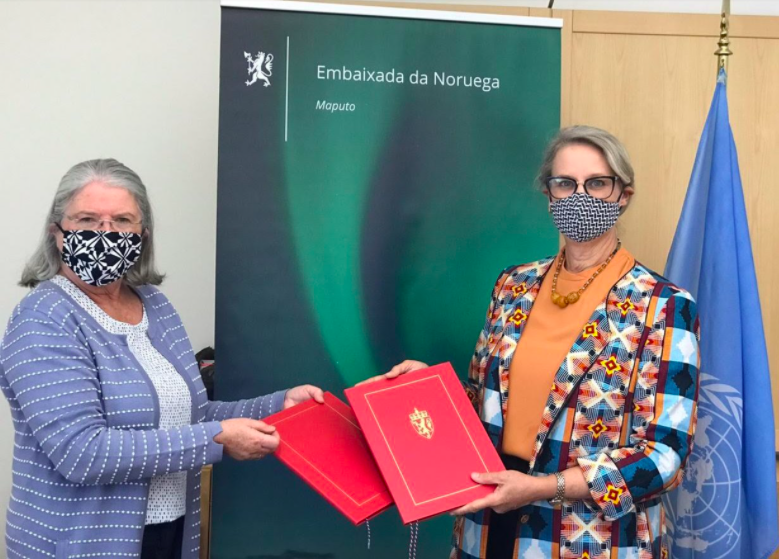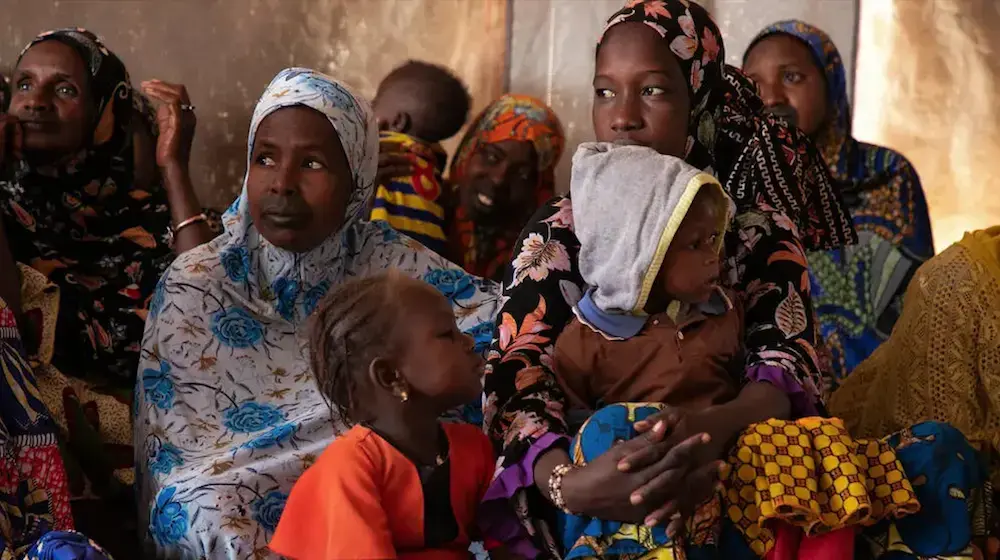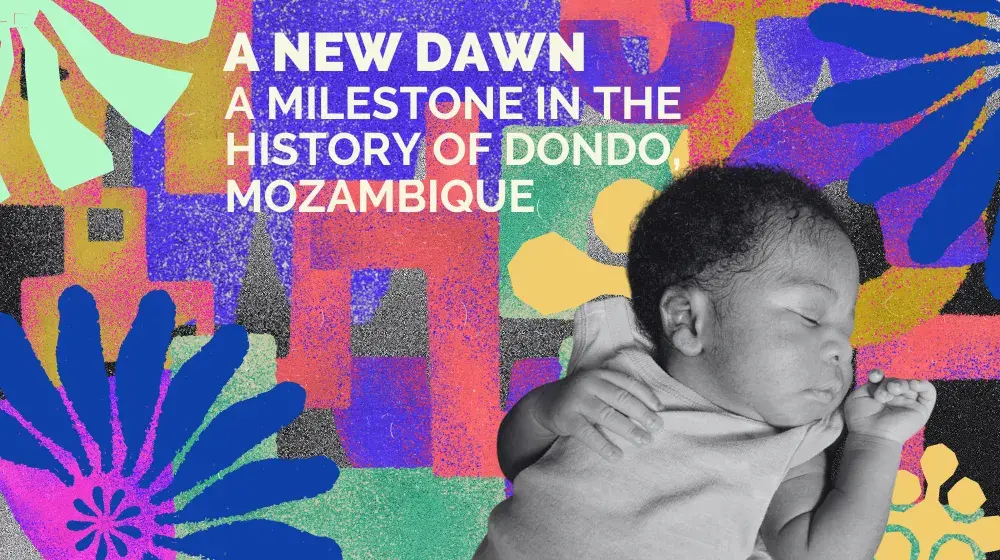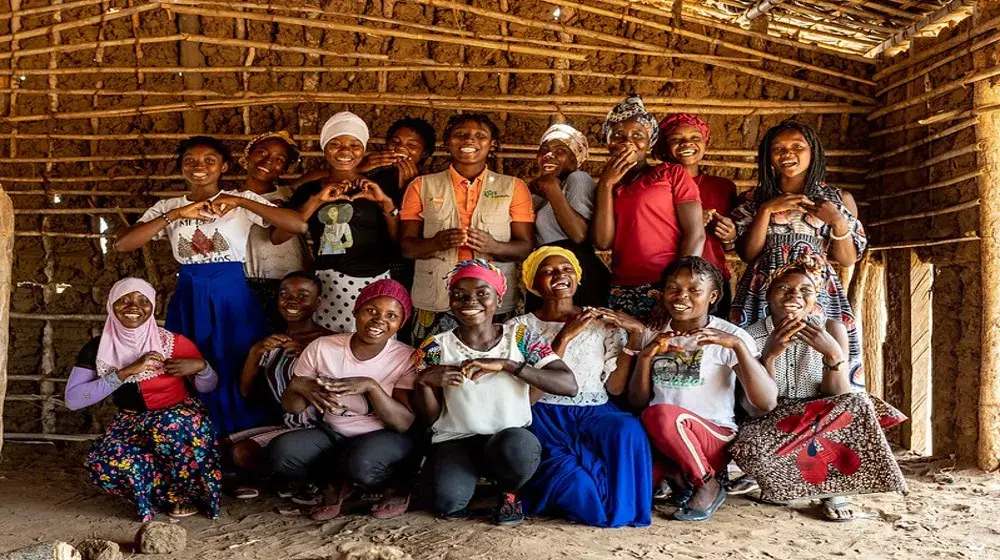Maputo - Additional funding from the Government of Norway of $1.1 million USD will enable UNFPA to support the Government of Mozambique to respond to the COVID-19 outbreak, with a focus on ensuring the health, protection and safety of 500,000 women and girls in Cyclone Idai and Kenneth affected areas.
Women and girls pay a high price during humanitarian crises - being more likely to die from pregnancy and childbirth complications to experiencing increased risks of gender-based violence (GBV). Understanding these known challenges, the additional funding mitigates these consequences and increases the availability of services, care and support, with a focus on sexual and reproductive health (SRH) services and protection and gender-based violence prevention, in Sofala and Cabo Delgado Provinces.
“Norway is fully committed to supporting those responding to the needs of vulnerable girls and women who are already recovering from devastating Cyclones, and are now faced with the impacts of a worsening pandemic, says H.E. Ms. Aud Marit Wiig, Ambassador of Norway to Mozambique. “By safeguarding and advancing the sexual and reproductive health of women and girls, and ensuring a life free from violence and harm, we are contributing to a more sustained and gender equal world, while also re-building the resilience and dignity of women and girls in Mozambique.”
Through the Norwegian support, UNFPA and partners will focus on strengthening the capacity of women and girls, including youth and persons with disabilities, to demand for and continue gaining access to quality services, but also to strengthen their resilience and agency as they transition from a post-disaster rehabilitation phase to reconstruction.

“While all crisis-affected contexts bring about an increased risk of GBV, and the cyclones were no different, the pandemic brings its own unique factors that must be addressed. UNFPA is thankful to the Government of Norway for recognizing these heightened risks, and providing additional funding to continue prioritizing the rights, safety, protection and well-being of girls and women during these compounded humanitarian crises,” says Andrea M. Wojnar, UNFPA Mozambique’s Representative.
In 2019, the Government of Norway organized the ‘Oslo Conference’ as a rallying cry to end sexual and gender-based violence (SGBV) in humanitarian crises. Through its leadership to advance advocacy and attention on the issue, the conference (the first of its kind) mobilized strong political and financial commitments and raised greater awareness to preventing incidents of, and protecting people at risk, of such violence, in humanitarian situations.
“18 months since the flagship international ‘Oslo’ conference, the Government of Norway continues to demonstrate its leadership by mobilizing partners and providing funding to partners working to prevent and respond to sexual and gender-based violence. It is imperative that we continue to prioritize the prevention of sexual and gender-based violence in humanitarian situations, in order to limit the trauma already experienced by affected populations," says Wojnar.
Globally, UNFPA estimates that for every three months of lockdown that continues, an additional 15 million additional cases of gender-based violence are expected, and could cause as much of a one-third reduction in progress towards ending GBV by 2030.
Key project activities to mitigate COVID-19 secondary impacts for already vulnerable populations include:
Engage communities, including community health workers, activists, female community leaders and others in COVID-19 community-based surveillance, and ensure appropriate infection prevention control measures are in place in residential areas hosting vulnerable populations.
Support the Maputo-based call center to respond to women and girls’ unique needs.
Establish ‘one-stop’ centers in resettlement camps and communities to provide immediate, integrated medical, psychosocial and legal services to survivors of violence.
Distribute female ‘dignity kits’ and electronic mobile vouchers to enable women and girls to purchase items, including menstruation pads, underwear, lights and whistles, to look after their safety and well-being.
Deploy all-terrain health clinics to most remote areas to deliver urgent reproductive health care and family planning, including ante-natal check-ups and distribution of contraceptives.
Organize community awareness campaigns on gender-based violence and activities in the already-established women-friendly spaces.
Provide virtual training to health and social workers, community activists and others, to ensure a minimum standard of GBV and sexual and reproductive health services is guaranteed.
The funding supplements the Government of Norway’s generous support to UNFPA in response to Cyclones Idai and Kenneth, reiterating their investment in gender equality and the empowerment of women and girls. In the aftermath of both cyclones, UNFPA has provided more than 1.1 million services to approximately 400,000 people in need, made possible through the support of the Government of Norway and other donors.





